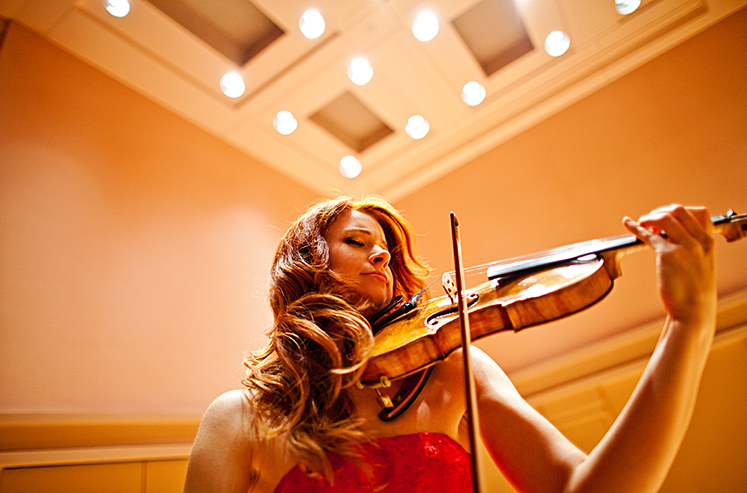Vaughan-Williams, Ives, and Mozart made a perfect triptych on the concert of the Dallas Chamber Symphony at Dallas City Performance Hall, with two guest soloists contributing impressive solo performances.
Vaughan Williams was up first with his deservedly popular hybrid of violin concerto and tone poem, “The Lark Ascending.” Violinist Chloé Trevor, a native of Dallas and graduate of the Cleveland Institute and Rice University, managed the extraordinary demands for musicality and subtle virtuosity in the solo portion. Here, the violinist must deliver with total control of tone and volume while conquering the quietly difficult technical demands. Trevor accomplished all of this while also communicating the poetic emotional content—basically, a musical translation of the flight of a lark. Conductor Richard McKay and the orchestra of just over thirty musicians did their part in providing the fragile backdrop against which the violin soloist paints this delicate picture. In a performance such as this, the profound passion of Vaughan Williams’ music, aiming at that wonderful final disappearance on a high B, communicated directly to the audience.
Englishman Vaughan Williams and American Ives were almost exact contemporaries; both were young men in their twenties at the turn of the 20th Century, both lived through World War II into the second half of the century—and both, to a large extent, distilled the national character of their respective countries through music. While Vaughan Williams hints at English folksong in “The Lark Ascending,” Ives quotes directly from sturdy American hymnody in his Symphony No. 3, “The Camp Meeting.” This chamber symphony evokes the plain, democratic faith and fervor of nineteenth-century American Protestantism, but throws in a hint of discord, of human beings who proudly and boldly sing off key or out of tempo; his counterpoint is neither beautiful or smooth, but still manages to be as colorful as the disappearing rural life he captured in music.
The orchestra’s task here is equally as complex as in the Vaughan Williams, but in a completely different way; McKay and the musicians wove through the complex textures and often counter-intuitive wanderings of this score with admirable devotion and precision.
After intermission, pianist Kyle Orth, a graduate of Texas Christian University currently studying at the New England Conservatory, and winner of the orchestra’s concerto competition, joined the orchestra and conductor McKay for Mozart’s Piano Concerto No. 20 in D minor. The room and the orchestra proved ideal for Mozart, with conductor McKay providing a perfectly shaped rendition—not too heavy, not too light—for this darkest of the composer’s concertos. Pianist Orth, who used Beethoven’s cadenzas here, leaned, appropriately, toward the romantic, assertive aspects of this concerto; when the sun finally broke through this stormy landscape in the final movement, the effect was joyous and exuberant in the best Mozartean fashion.





